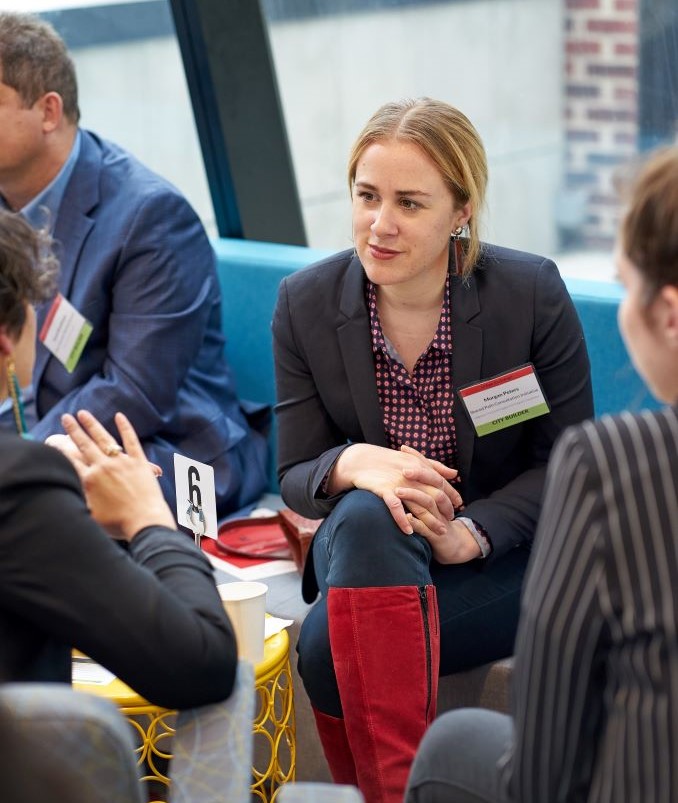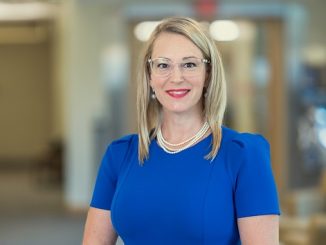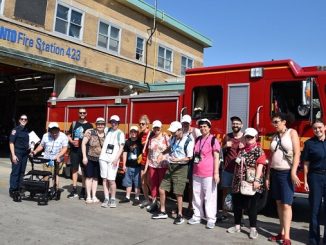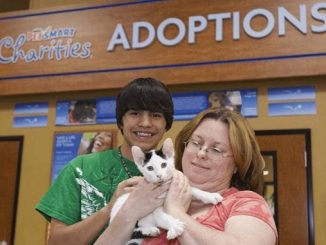Shared Path is a charitable organization that pursues a future in which Indigenous voices, obligations and rights form a sustained and integral part of how we share land and water. We spoke with the Executive Director of Shared Path, Morgan Peters, to learn more about their mission.

Describe your charity/non-profit in a few sentences.
Shared Path works towards a future in which Indigenous voices, obligations, and rights form a sustained and integral part of how we share land and water, particularly with respect to land use planning law, policy, and governance in Ontario. We believe that land-use planning can be a tool for supporting the creation of healthy and vibrant communities. Mutual flourishing requires understanding how Canada’s history of colonialism informs the present (planning today) and is crucial for planning a future that benefits all.
What problem does it aim to solve?
Historically, land use planning decisions have been made by local governments with little or no consideration for the rights, interests, or obligations to Indigenous peoples. This disconnect has led to conflicts such as the 1990 Oka Crisis and more recently the confrontations at 1492 Land Back Lane (Caledonia).
Municipalities are now mandated through the 2015 recommendations of the TRC and the 2020 Provincial Policy Statement, to incorporate constitutionally protected Aboriginal and Treaty Rights into their official planning policies and processes. They are also often delegated authority to fulfill the Crown’s duty to consult and accommodate without the tools and resources to consult with Indigenous peoples. Indigenous Nations are looking to better navigate and inform these processes and engage in proactive relationship-building with local governments. Shared Path exists to support these entities to come together in good faith and work towards a better-shared future.
When did you start/join it?
I started in 2018 as a project coordinator.
What made you want to get involved?
I wanted to be part of an organization that was actively working towards truth and reconciliation. Shared Path was (and is) doing something really innovative, acting as a bridge-builder between Indigenous and non-Indigenous communities at a grassroots level. The people involved in starting this organization were experienced with the issues at hand and very well respected in their fields/communities. I’m not Indigenous but thankfully I am guided by some excellent Indigenous board members including our President and Co-Founder, Carolyn King.

What was the situation like when you started?
When I started with Shared Path, it had just been incorporated as a non-profit and received its first funding from the Greenbelt Foundation to support Indigenous-municipal engagement. We were hosting workshops to learn what we could be doing to support consultation staff at Indigenous Nations and planners at municipalities so that they could start building better local relationships.
How has it changed since?
In the 3 years since we held those initial workshops, we have hosted many educational webinars, set up an online resource database, undertaken research to demonstrate policy gaps, built a digital consultation map, provided internships, and set up a weekly memo to support self-guided education. Our network has grown, and we have seen a significant increase in inquiries from municipalities and developers looking for support to begin or improve engagement with Indigenous communities. It’s heartening to see more people paying attention and responding to the TRC’s calls to action.
What more needs to be done?
There is still a lot of work to be done. The needs of the groups we serve are very different. It is clear to us that municipalities and land use professionals are most in need of education and guidance, whereas the needs of Indigenous Nations relate to capacity gaps and technical requirements of responding to municipal requests. The multiple layers of jurisdiction that Indigenous governments are required to navigate to solve any given issue compounds the challenge. So, there is a need to change the parameters of the provincially regulated planning system and better funding for Indigenous consultation departments. While we advocate for that, we are finding best practices and creating tools to try to relieve some of the burden.
How can our readers help?
Learn about Indigenous worldviews and challenge your preconceived notions about Indigenous peoples. Learn whose land you’re on, learn more about the Métis and First Nations in Ontario, and encourage your local governments to form positive working relationships with those Nations. You can also support what we do by becoming a member or making a donation.
Do you have any events coming up?
Check out our events calendar.
Where can we follow you?
There is lots of information and resources available on our website. You can also find us on Facebook, LinkedIn and Instagram.
PAY IT FORWARD: What is an awesome local charity/non-profit that you love?
The Moccasin Identifier Project!



